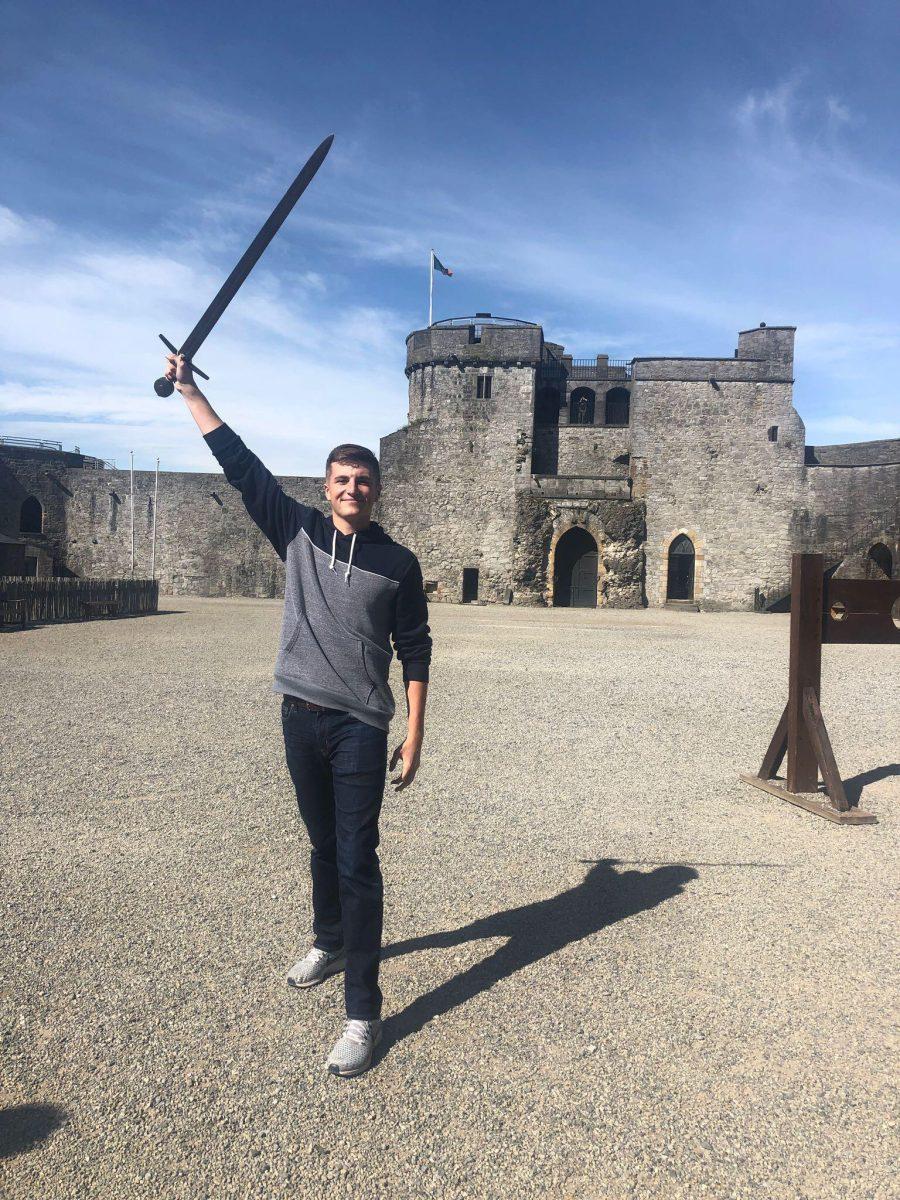When Robbie McElligott ’21 returned from a life-changing experience studying abroad in Ireland during the fall 2019 semester, he was initially excited to see his family and friends again.
But soon McElligott began to feel depressed.
“You know, you miss being there, seeing people you might never see again,” McElligott said.
The Center for International Programs (CIP) hosted a luncheon last month for study abroad students like McElligott who returned to St. Joe’s this semester. About 30 students attended, according to Sara Haines, assistant director for semester abroad and health and safety. That’s up from about 20 students who attended the inaugural luncheon in the fall.
“The goal of that event is for students to network and meet other students who are returning so they can share their experiences,” Haines said.
At the spring semester luncheon, a member of St. Joe’s Counseling and Psychological Services (CAPS) joined CIP staff to talk about coping strategies and highlight resources on campus to assist students who may be struggling.
“We want to highlight the positive but also make sure students know it’s okay if you have some negative feelings too and how to manage those,” Haines said.
Haines said it is normal for students to feel a complex array of emotions when they return from abroad.
Marisa Marte ’21, who spent the fall 2019 semester in New Zealand, had to process her experience as a student of color in that country.
“They had a woke view, but take woke very smally because it’s still a very white country,” Marte said. “They were colonized by the British, and the indigenous rights aren’t what they should be. They’re still fighting for their rights, rights for their land. I saw similarities of how Americans colonized, same thing with New Zealand.”
Haines and Ilana Egert, manager of study tours and summer programs, explained at the luncheon that it is common to experience “reverse culture shock” after spending time away from home in another country.
“Some students might feel irritable, frustrated, things maybe aren’t how they remembered or they’re missing things back in their host country,” Haines said.
Haines added these feelings may actually begin before students return to the U.S.
“We call that stage ‘disengagement,’ and that is where you realize your program is coming to an end and you feel sad and start saying your goodbyes,” Haines said.
Like McElligott, Erin Prachar ’20, who spent the fall 2018 semester in Galway, Ireland, found the transition back to St. Joe’s was rough.
“It was weird seeing how different everything was coming back through that new lens,” Prachar said, “But also that other peoples’ lives went on while I wasn’t there.”
Prachar said it helped to talk to other people who had similar experiences, and she also relied on someone in Campus Ministry with whom she was close. But first she had to get over the embarrassment she felt.
“You feel like you don’t really have a right to feel that way,” Prachar said. “But being able to reach out to other people who might be experiencing those same things or that you can talk to about, it helps.”
Once Prachar opened up to her friends who also had been abroad, she realized she wasn’t alone.
“They were having a lot of the same problems, trying to readjust to being back, getting back into the swing of things, making peace with who we were before we went abroad, who we were when we were there, and who we were now and trying to figure out how we fit into campus,” Prachar said.
Prachar said she eventually adjusted but it took time.
“I think the whole semester coming back was like a big adjustment period,” Prachar said.
Despite any issues adjusting back to life at St. Joe’s, McElligott said his experience abroad was worth it.
“It gives you a better perspective for the rest of your life,” McElligott said. “When you go abroad, it makes you realize how much more the world has to offer.”














































